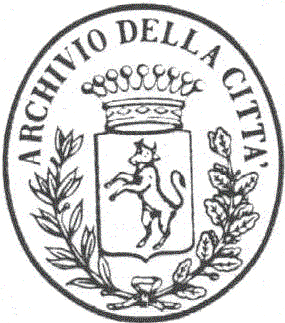|
Admissions Procedures
How the reading rooms work
Admission to the reading
rooms.
Requesting
material.
Consultation of documents.
Search costs.
Microfilm.
Photocopies.
Photographic studio
Admission to the reading
rooms.
Readers admitted to the reading rooms must first of all leave
any bags in the cloakrooms, equipped with lockable lockers.
Admission to the reading rooms is granted until all available
seats are taken. The chairs available for readers cannot be moved.
Readers admitted to the reading rooms for the first time that
year are required to fill in the appropriate admissions application
form. On subsequent admissions they must identify themselves
to the reading room staff.
The use of mobile telephones is not allowed in the reading rooms;
similarly, it is forbidden to eat or drink or introduce animals.
It is absolutely forbidden to smoke in any part of the Archives
whatsoever.
In the reading rooms, readers, whether they are admitted for
the first time or whether they are consulting material already
available to them, must first contact the member of staff responsible
who will assign them a numbered desk, bearing in mind their relative
consulting needs (large formats, personal computers etc.). Readers
are required to sit at the desk assigned them.
Readers are invited not to crowd around the staff enquiry desk.
A red light flashing on the desk assigned informs readers that
the material requested has arrived and invites them to go to
the staff desk.
Readers should address reading room staff only and not hand in
requests directly to the book handlers. 
Requesting material.
Request forms must be filled in at the desk assigned to the reader.
Readers can ask for up to 3 archival items per day.
Requests for material kept on site and presented by 14.00 will
be brought up as soon as possible. Requests presented after that
time will be delivered the next day by 9.00.
Requests for material kept in other stores will be delivered
over the following days depending on office programming.
Being employed by the Comune di Torino does not exonerate a reader
from filling in the request forms. 
Consultation of
documents.
The documents can be consulted only at the desk assigned.
It is absolutely forbidden to alter in any way and by any means
the state of the documents under consultation and the furnishings.
It is likewise forbidden to add any annotations or cross-references
to the documents or to alter the order. The reader must immediately
make known any eventual lack or erroneous collocation of the
material requested.
When consultation has terminated, the archival material must
be handed back to the reading room staff, together with the relative
request form. If consultation of the same archival item extends
over more than one sitting, the reader must place the material
consigned to him in the appropriate lockers every time, together
with the relative request form: material not consulted for a
period of more than 15 days will be returned to storage.
Collections in the course of reorganisation or being inventoried
are not available for
consultation. 
Search costs.
In accordance with the resolution of the Mayoral Council dated
10 May 1994 n. mecc. 9403698/02
(integrated with the resolution G.M. 14 November 2000 n. mecc.
2000 09879/49)
searches made "for certified study reasons" are carried
out free of charge. Readers must thus auto-certify on the request
forms, on their own responsibility, the reasons why they are
carrying out their research.
For free-of-charge searches carried out for personnel employed
by the Comune di Torino for work purposes, the person requesting
the search must auto-certify, on his own responsibility, these
purposes on the appropriate form. 
Microfilm.
Microfilmed documents must be consulted using the appropriate
viewers and cannot be consulted in their original form, unless
there are justified reasons relating to the nature of the research.
Use of the viewer for consulting microfilms must first be reserved:
this should be done with the reading room staff. 
Photocopies.
Where permitted and limited to a small number of copies, photocopies
can be made immediately, unless the reading room staff deem it
not possible. In this case the reader will be asked to return
the next day to collect them. If the number of copies requested
is particularly large, several different consignment times may
be established.
It is forbidden to photostatically reproduce documents on parchment,
that are bound or that are in a precarious condition, as well
as drawings, plans and projects and all documents prior to 1900.
To this end, readers are asked not to insist with their requests,
since they will not be carried out.
Large format heliographic copies and large format photocopies
that involve the transfer of the originals to be reproduced to
an external heliographer can be carried out, prior to reservation,
on Tuesdays and Thursdays at 14.30.
The loan of photostatic copies of 'Progetti Edilizi' [Building
Projects] on ordinary, large format paper for heliographic reproduction,
is permitted upon submission of an identity document. 
Photographic
studio.
The photographic studio is available for readers, prior to
reservation, from Mondays to Fridays with the following timetable:
9.00-12.30 and 13.30-16.00.
To avoid an excessive build up of documents removed from consultation,
no more than 20 archival units can be photographed at any one
time, whether they are progressively put aside during research
or whether they are specifically requested. In the latter case
the reading room staff will reserve a photographic slot after
a time lapse proportional to the number of documents requested,
but no more than a week, unless the studio is not available.
For particularly fragile or rare material, a professional photographer
might have to be called in.
The detailed costs and norms regulating use of the photographic
archive are listed on the page describing the Photographic
Library.  |

